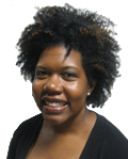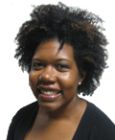
Personal Perspectives
Lessons from Sophomore Year
While experiencing déjà vu, let me incorporate lessons I learned.
Posted September 21, 2009
Apparently, it's my sophomore year in college because I've been experiencing plenty of déjà vu. It's manifested itself in various ways. If I'm going to continue experiencing sophomore déjà vu, let me take the lessons from that year and make the most of them.
One recent experience was when I got back in touch with one of my best friends from college. Even though we hadn't seen each other for years, it feels like we've picked up from where we left off.
Another set of flashbacks has come from me flirting with some bad habits that I developed sophomore year in college. I've struggled on and off with them and had a reprieve for a long time, but sometimes they resurface.
This rash of flashbacks culminated last week when the DC sniper attacks were brought to the forefront again. I heard that the main sniper, John Allen Muhammad's, execution date was set, and I instantly remembered that terrifying month in October. I recalled the fear and uncertainty that I, and everyone I knew, felt.

I've been thinking, That year had great parts and some really rough parts. What does it show me when hiccups reoccur? I see that I have to have humility and I have to pay attention to previous challenges; just because something hasn't been an issue for a while doesn't mean it won't come back up. Often it's when I'm not paying attention that it might flare again.
I also thought, What are some of the positives from sophomore year and how can I incorporate them into my life? One of the positives was that I was really dedicated to, and thriving in, recovery from my eating disorder. A mentor told me, "Do whatever it takes to stay in recovery." I finally took her words to heart, and that's how I tried to live.
I wrote down everything I didn't want to do that I knew would help me, and those were the things I tried to do first. I didn't necessarily want to go to eating disorder support group meetings, so I didn't let "not necessarily" be an option; four to five times a week, I'd walk three miles round trip from my dorm to whatever meeting was available. Sometimes that meant going to a meeting when I'd rather go to a party. I also didn't want to call people to check in with them and see how they were doing, so I'd try to call people in the afternoon instead of leaving it to the last minute. I was reluctant to follow a food plan, but I worked on keeping one. Despite not wanting to do these things, I didn't give myself a choice not to do them. What do you know - The more I did them, the easier they became.

Certain things were easier. Writing was one of them. Creating grateful lists wasn't that hard. Reading recovery literature wasn't much of a struggle. Being willing to do whatever was needed - and then doing it - really helped me.
Here are some other lessons I learned that year:
Use my friends. That's why they're my friends and not my acquaintances. Friends are there to be used. Yes, used. I cannot tell you how many times I've called a friend when I've felt that I was at the end of my rope or like I was going to do some destructive behavior and no one could stop me. Turns out just talking to someone who understood me helped. Next thing I knew, I'd realize, Wow, I didn't do that behavior that I was planning to do.
It's a two-way street. While I'm using my friends, be available for them to use me. That's why I'm there.
Be willing to reach out to other people. Sometimes it's difficult to go out of our comfort zone. But everyone is experiencing something and sometimes even if it seems someone's not, they might really need someone to talk to but are afraid to reach out. Being able to say, "Hey, I wonder if this person wants to talk or go out to coffee or this person wants me to listen," can really help.
Doing everything that I could was fine and dandy, but it was still bigger than that. I could get caught up in a big cloud of self-will and think: "I'm doing great", "I'm really working my program", "Woo hoo", then I'd discover - whoa, I'm still human. One of my friends refers to the antidote for this as "always more God". Guess what? It works.

Here are some ways you can incorporate these lessons for yourself:
- What are the things that you don't feel like doing but that are beneficial for you? (e.g. working out a few times each week, watching what you eat, balancing your checkbook) Do those things earlier rather than later. If you get them out of the way, you won't have to bemoan and procrastinate on them.
- Find a support system to help you reach your goals. If you want to read more books each month, join a book club. If you'd rather brown bag your lunch instead of going out everyday, find co-workers who also bring their lunch from home. Having support from others can make the difference between you keeping or foregoing your goals.
- Use your friends.
- Allow your friends to use you.
- Reach out to other people.
Think of these ideas as fuel. My car - that is, me physically, emotionally, mentally, spirituality - uses up gas all the time. If I keep taking from it, eventually I'm going to be running on empty. I need to fill it up so when I need gas, there's a reserve. Likewise, incorporate lessons you've learned from previous experiences so that when you need extra assistance, reserves are available for you.



